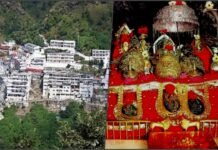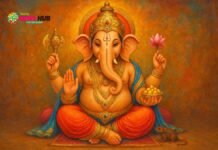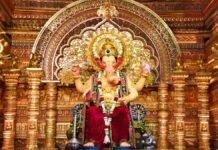
There was a time when almost every wall in Kolkata, the capital of West Bengal, bore the slogan, “Bondukar Nol-e, Khomotar Utsa,” meaning “Power comes from the barrel of a gun.” This phrase, originally coined by Chinese leader Mao Tse Tung in the 1920s, was popularized in Bengal by Charu Majumdar, the father of Maoism in India. Today, July 28th, marks the anniversary of his death, a pivotal yet controversial figure in Indian history.
Charu Majumdar: The Controversial Father of Indian Maoism
Charu Majumdar died 52 years ago in police custody on July 28, 1972. Despite the passage of over half a century, his legacy remains contentious, as it is marred by violence and bloodshed. Majumdar’s name still evokes fear among those who witnessed the brutal acts of his followers, known as Naxalites.
From Wealth to Revolution: Majumdar’s Early Life
Born into a wealthy family in 1918 in Siliguri, West Bengal, Charu Majumdar abandoned his privileged life to become a revolutionary. His disdain for landlords, whom he saw as symbols of oppression, drove him to spearhead the Naxalite movement. Even today, Naxalites draw inspiration from Majumdar’s ideology and actions.
The Iconic House on Mahananda Road: Birthplace of a Movement
Majumdar’s house at 25 Mahananda Road in Siliguri has become an emblem of his revolutionary activities. It was here that he and his comrades plotted the liberation of Naxalbari village from landlord oppression. This house is also where Majumdar and Kanu Sanyal drafted the “Historic 8 Documents,” which laid the foundation of the Naxalite movement in India.
A Movement Rooted in Rebellion
Charu Majumdar’s disdain for the term ‘landlord’ stemmed from his belief that it represented barbarism. He rejected the views of many renowned scholars, writers, and social leaders of Bengal, branding them as elitists. Majumdar’s radical ideas and actions led to widespread violence and upheaval in the region.
A Controversial Death: Heart Attack or Police Negligence?
Arrested on July 16, 1972, Charu Majumdar died in police custody on July 28, allegedly from a heart attack. However, his son, Abhijit Majumdar, and many others believe that the police deliberately withheld necessary medications and oxygen, effectively murdering him. This controversy over his death adds another layer to his already complex and contentious legacy.

The Enduring Impact of Majumdar’s Legacy
Charu Majumdar’s influence persists even today, with his revolutionary tactics and ideologies continuing to inspire Naxalite activities in India. His life and death remain subjects of debate and reflection, symbolizing the complex interplay of idealism, violence, and political struggle.
Charu Majumdar’s story is a stark reminder of the turbulent times that shaped modern India’s socio-political landscape. His legacy, soaked in blood and controversy, continues to provoke discussions and analysis, reflecting the enduring impact of his revolutionary spirit.






































